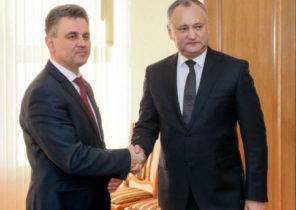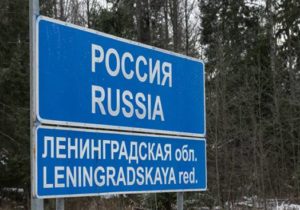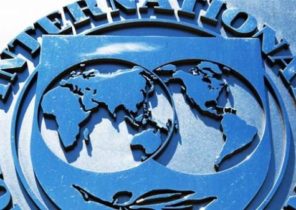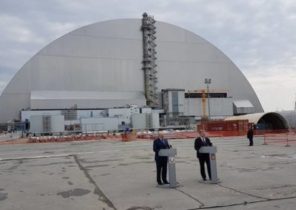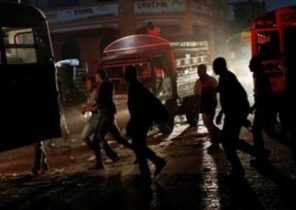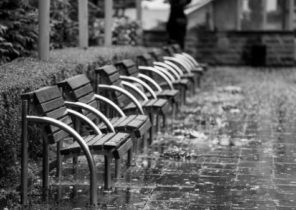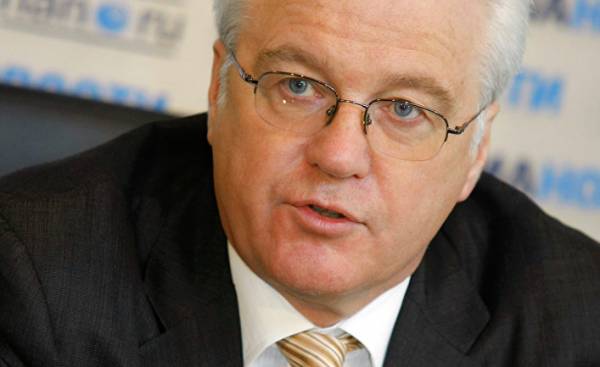
Monday, February 20 died Vitaly Churkin, who for the last 10 years held the position of permanent representative of Russia to the UN and was one of the most successful diplomats in the world.
I held the position of U.S. permanent representative to the United Nations in 2013, before the inauguration of President Donald trump, and in the last few years I have probably been the most visible opponent of the Ambassador Churkin. He faithfully defended the criminal actions of President Vladimir Putin in Ukraine and Syria.
At the same time, he was a masterful story teller with an incredible sense of humor, a good friend and one of the best hopes for collaborative work between the US and Russia. His death broke my heart.
I am also very sad that in our overly polarized environment praise Vitali — as a diplomat and as a person — is interpreted as a concession to Russia’s aggression.
When, after learning about his death, I called him “Maestro of diplomacy” on his page on Twitter, I was bombarded with criticism for what I am supposedly trying to justify the crimes of Russia and “mourn their chief accomplice”. “Ask the Syrian and Ukrainian children, what they think about it”, — was said in one of tweets.
I believe that Russia, Mr. Putin poses a serious threat to U.S. interests, and those people who, like President trump, with praise of Mr. Putin — and equate that the destabilizing role of Russia in the world, to the role of the United States — are deeply mistaken. The Russian government has murdered his political opponents seized the territory that belonged to its sovereign neighbours, massacred countless civilians in Syria and interfere in the course of democratic elections, including in the United States.
However, I also believe that we must build relationships with specific Russians, despite their complexity and inconsistency. Our security actually depends on our ability to overcome ideological barriers to understanding each other and try to solve problems together.
When I came to new York, my predecessor, Susan rice (Susan Rice) told me: “Try to establish a relationship with Churkin. He’ll drive you crazy, but you will need each other.” By the time Vitali has held the position of Russia’s permanent representative to the UN for six years, and his diplomatic experience was almost four decades. Since Russia is one of five countries that can use its veto power in the UN security Council (it gives her the opportunity to block any resolution), I needed the support of Vitali, to achieve the adoption of important resolutions in the UN security Council to send peacekeepers to conflict zones and to impose sanctions against recalcitrant individuals and countries.
We often encountered in hot — sometimes sarcastic — the discussions on the fundamental questions of facts and fairness. If to speak about the illegal occupation of Ukrainian Crimea, the official Russian version is so much different from the truth that I accused him of the ability to write novels better than Tolstoy. As for Syria, I have worked to ensure that he is somehow responsible for that massacre, asking him during a joint offensive on Syria, Russia and Iran in Aleppo: “You really incapable of experiencing shame?”
He, in turn, was able to skillfully avoid answering, calling me “mother Teresa” and shifting the conversation from Ukraine and Syria to America’s war in Vietnam and Iraq.
Sometimes — when, for example, he said that civilians in Aleppo, specially get dirty with dust, to look in front of cameras photographers as victims of the bombing — my disgust interfered with our working relationship.
But we knew that we need to work together, and we did. We were able to agree on joint introduction against North Korea the sanctions for a generation, we have helped to mobilize the response to the epidemic of the Ebola virus and the choice of the new energetic General Secretary.
Whether negotiations lasting several months or commotion for a few minutes before the vote, we may fiercely argue with each other in fundamental points, but to find a way to hear each other and understand what we need. As soon as we were able to agree on a particular plan, the rest of the country, as a rule, obeyed, apparently believing that if we failed to find a common language, so can they.
I think I best learned Vitaly it is through questions that we could not come to a consensus. 20 years after the Bosnian Serbs killed more than eight thousand Muslim men and boys within the obvious act of genocide in Srebrenica, UK wanted to celebrate the anniversary of this crime by the adoption of a resolution condemning it. It soon became clear that Mr. Putin, who wanted to bond with Serbia, was determined to prevent the security Council called the killings “genocide.” We with Vitaly spent a few days on the development of such a draft resolution that would suit him President. In the morning of the vote, Vitaly was unable to hide his disappointment when in his email he wrote: “Not work”. And he vetoed the resolution.
We all know that Vitaly Churkin raises his hand six times to veto the resolution on Syria, but few people know that it is Vitaly struggled tried (unfortunately in vain) to make the texts of these resolutions staged Moscow.
Despite the fact that he was the face of many of the criminal actions of Mr. Putin, he sincerely believed in the relationship between our two countries. When U.S. Secretary of state John Kerry and Minister of foreign Affairs of Russia Sergey Lavrov attempted to develop a joint plan to combat terrorists in Syria, Vitaly was extremely happy partnerships. When that attempt failed, he urged us to resume work. He often told me stories about how he worked as an interpreter in negotiations on arms control in the cold war era, with an emphasis on the fact that, despite the difficulties in the relationship, we can start to cooperate with each other, finding specific areas where we can work together to achieve success.
Even in those moments when our positions were diametrically opposed, we’ve always listened to the calls of each other. When I asked him to meet with humanitarian workers who witnessed violent crimes (including those committed by Russian security forces), he usually met with them or sent any high-ranking official of the Russian mission to the meeting. When Syria missing journalists or human rights defenders and I asked him to put pressure on the Assad regime, that he assisted in their quest, he always figured out all the details to assist inside your system.
No matter how badly deteriorated the relations between our countries and we have seen a sharp decline over the time that we spent together — we had a lot in common. We both loved sports, and the only time I couldn’t reach him, this is when Russia was fighting for an Olympic medal. We went together to sporting events (he loved hockey and tennis, but I preferred Major League baseball, but I never managed to convince him that baseball is an interesting game, so we got together on the basketball).
He and his wife Irina loved the theater. When I invited a group of ambassadors to Shakespeare, he was the first who sprang to his feet, becoming the initiator of a standing ovation on “Timberline”. He never reproached me for the fact that the media actively discussed the fact that I took him to the musical “Fun home”, dedicated to the LGBT community. “Hamilton,” he asked my husband, a law Professor, about the origins of the Constitution. I showed him the TV series “the Americans,” which he called “a little ridiculous”, but still watched with interest.
I’ve invited Vitaly and Irina in my parents ‘ house for thanksgiving, and he became my only colleague at the UN who ever crossed the threshold of the house my family are Irish. And during one of our recent private meetings he beamed when I invited him along to run a course in the master after the resignation, possibly even having exchanged roles and presenting the view of each other.
Vitaliy has spent his professional life protecting the country, whose culture and traditions he revered. Despite the fact that he never shared my point of view about the President, I felt that he appreciated the fact that Putin has restored Russia’s position on the world stage, but I prefer peace methods. As far as I know, he never considered the possibility of resignation in protest against the crimes of Mr. Putin. However, if he did, most likely, in its place would come another diplomat, less inclined to compromises that would weaken the ability of the UN to promote the ideas of peace and security and further spoil relations between the US and Russia.
While the rest of the diplomats came and went from new York, it was one constant element. It was Vitaly Churkin — terrible as an enemy, caring as a friend and as a fierce defender of Russia — the country he admired and sought to make her proud. If we want to improve relations between our countries — a prerequisite for the successful solution of global problems — we Americans don’t need to neglect their principles. We need to remain steadfast and not to forget about the need to establish human relationships with those with whom we strongly disagree.
